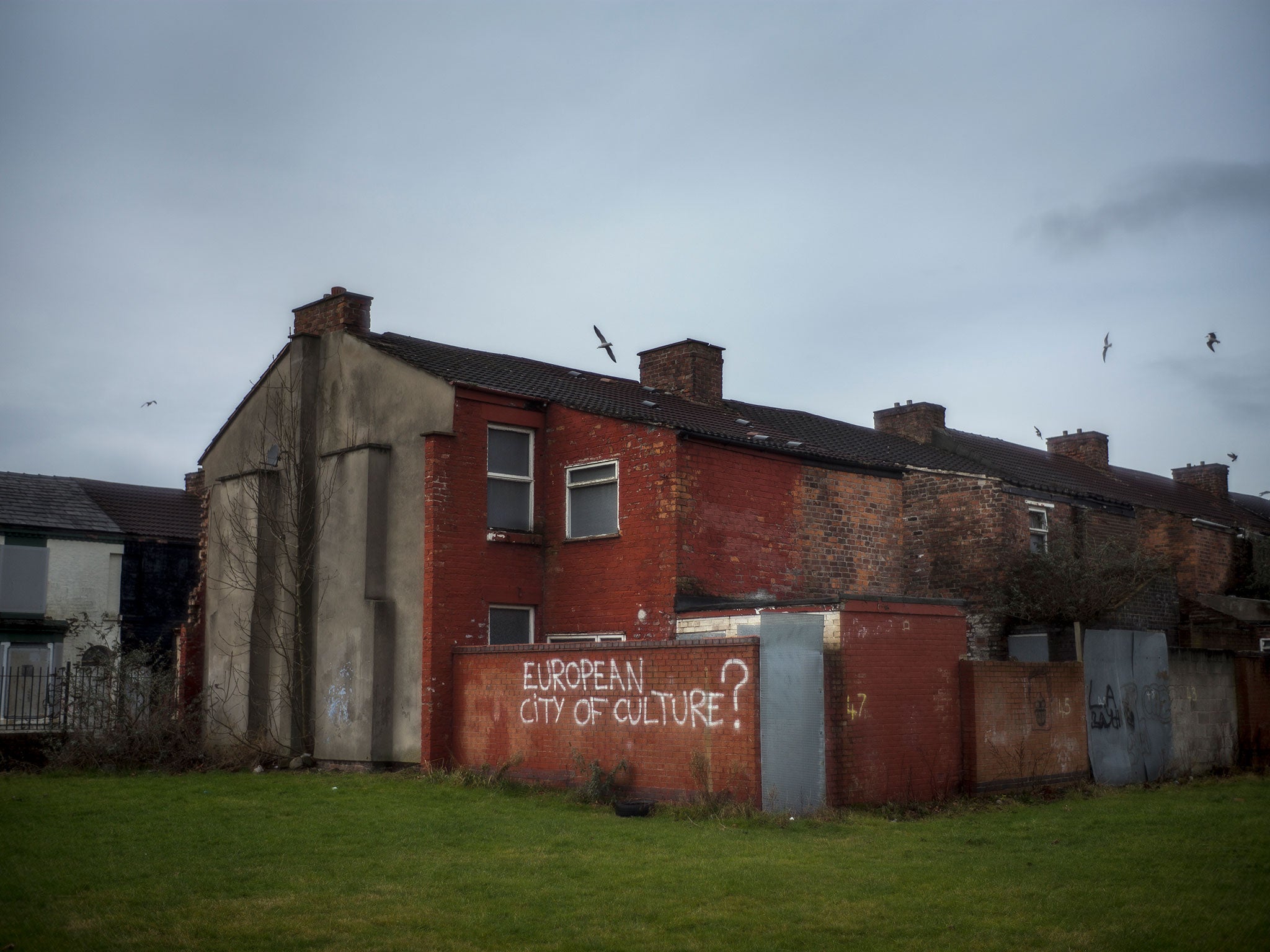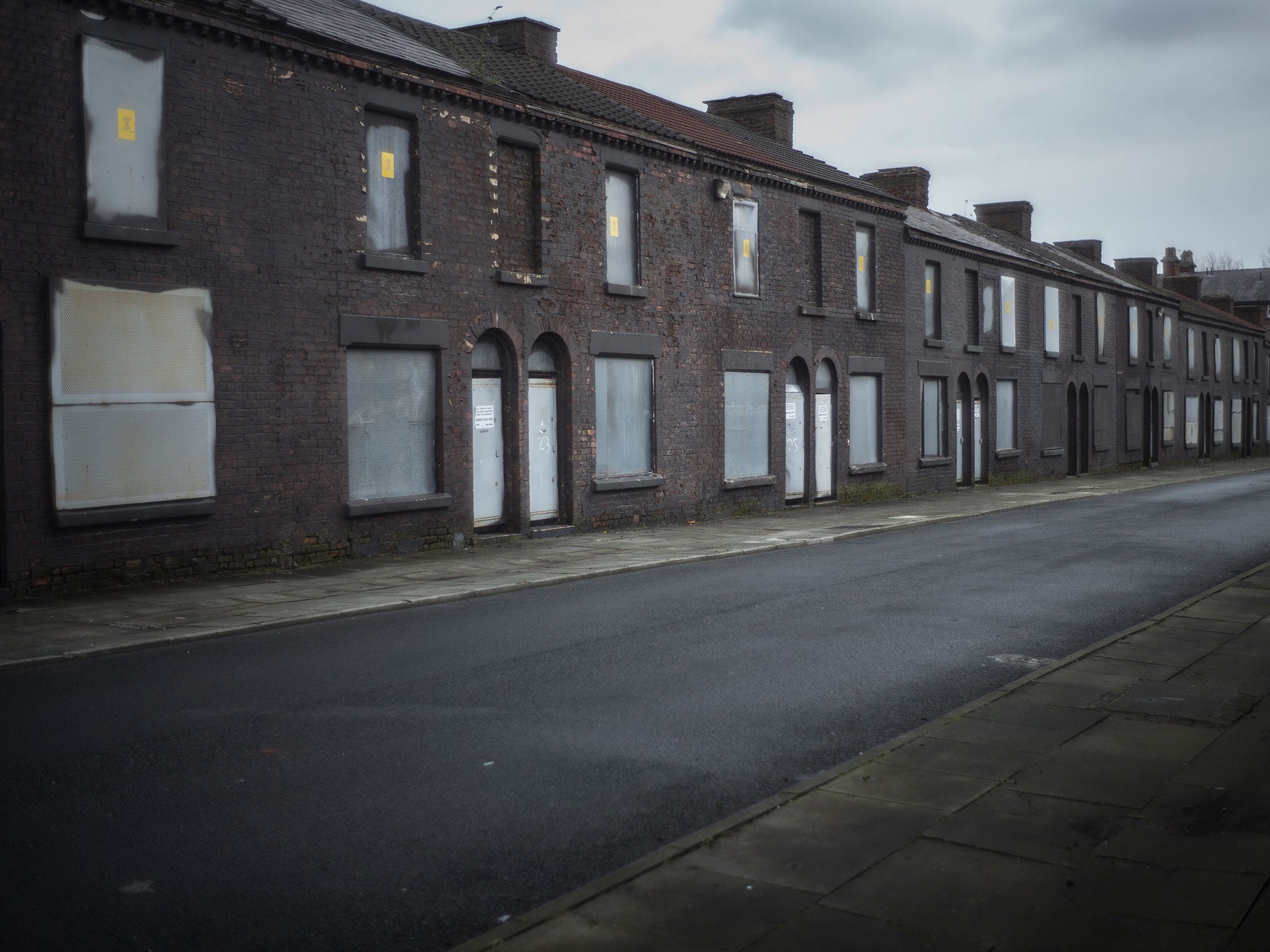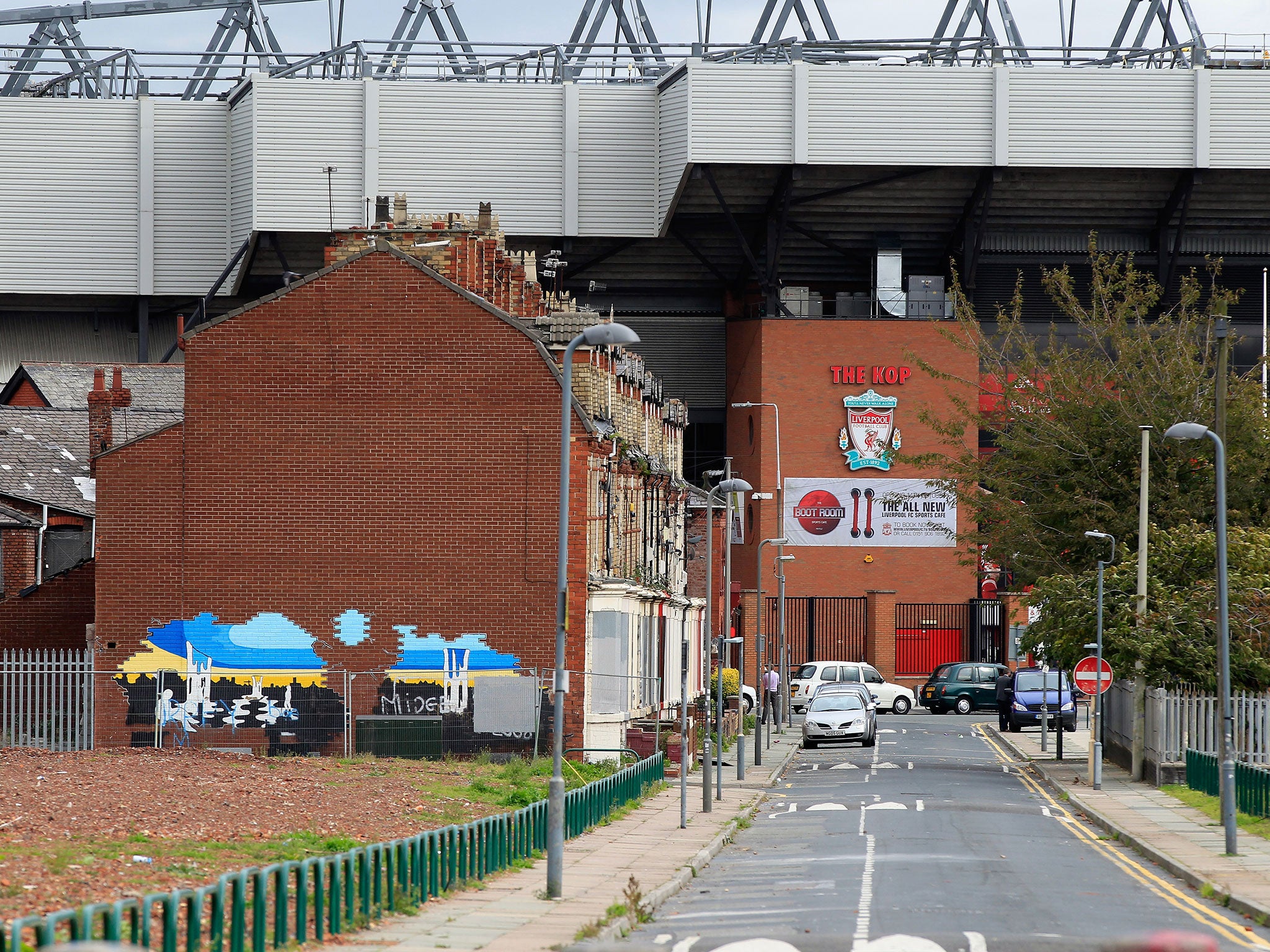The city of Liverpool and its people couldn’t be further from a Champions League final – but football brings hope
Liverpool has changed as much as it has stayed the same since 1981, the year one of its teams beat Real Madrid in a European Cup final. Fans from the city's two clubs are attempting to change that
Bunting stretched across one of Liverpool’s most famous boulevards last Thursday. Where the Toxteth streets of Granby and Beaconsfield join, the green, white and red of the Somaliland flag glistened in the late afternoon sun. There was no royal wedding celebration here, but the marking of a national holiday in a place that shares something with Liverpool and something with Toxteth. Somaliland exists as a self-declared state within a country it feels very separate from. Toxteth, indeed, can feel very separate from Liverpool.
Much of Liverpool’s identity is shaped around Toxteth's history. Wealthy sea captains had lived here when Liverpool, through its maritime strength, had been one of the richest cities in Britain, second only to London. The sea captains were long gone when in 1981, just a hundred or so yards away on Selborne Street, a chase involving an unmarked police car and a young black man on a motorbike unfolded, with an arrest happening at a junction where people gathered to pass the time. Police had suspected the bike was stolen and the watching crowd suspected the sort of unacceptable harassment from authority that had become a feature of daily life for black youths.
The subsequent riots in Toxteth happened little over a month after Liverpool’s 1-0 victory over Real Madrid in the final of the European Cup. In the consciousness of outsiders, the district remains to inner-cities what Lebanon is to the Middle East. While Liverpool has transformed itself as a popular tourist destination, and while the mood in Toxteth has lifted in recent years – thanks largely to the efforts of impressive community leaders like Joe Farrag, who helped tidy up Beaconsfield Street to the extent you now imagine you could actually be in Brooklyn – the economic and social realities which contributed towards the uprising in 1981 are still as stark in many areas as they were then.
Eleven of Liverpool’s neighbourhoods are among the most deprived one per cent in the country. Life expectancy in is six and a half years lower than the national average. Foodbanks have become both a symbol of the desperation but also a source of salvation and even hope.
The Fans Supporting Foodbanks campaign, which involves both Liverpool and Everton, now supplies around 20 per cent of all foodbank donations in Liverpool. A conversation between Ian Byrne from the Spirit of Shankly group and Dave Kelly from Blue Union prompted them to approach the nearest mosque to Anfield and Goodison Park and, ever since, the Abdullah Quilliam Society have been taking sizeable collections and sharing them. There is an arc to the story because many of the mosque’s congregation, which includes people from 30 different countries, come from Toxteth.
The mosque, located on Brougham Terrace, is three doors up from the famous Grafton Ballrooms – roughly equidistant from Toxteth and Anfield. It is Britain’s first mosque, though it only re-opened in 2014 having closed 106 years before. Abdullah Quilliam had been a close friend of John Houlding, the founding father of both Everton and Liverpool, though the pair differed on their views towards alcohol, which eventually sent them on different paths. While Houlding was a successful businessman who owned ten pubs, Quilliam was known as one of the city’s prominent Temperance campaigners against “the demon drink.” Houlding would set Liverpool up and moved Everton out of Anfield because of a brewery dispute, while Quilliam would convert to Islam and later – in his capacity as Sheikh al-Islam of the British Isles – would invite Houlding on a tour of the East, arranging an introduction to the Ottoman court.

Mumin Khan is chief executive at the Abdullah Quilliam mosque, and he believes it is the duty of every Muslim to help support the community, regardless of faith. “One of the first things we are told as a Muslim is to help your neighbour, to help the poor and the needy,” Khan says. “Abdullah Quilliam followed that and he would have around 200 orphans living here, studying maths, English and science. There would be 300 girls attending a day school.
“In the evening, he would open the door to a number of people for hot food: soup and bread. He was always helping, but that was 100 years ago. I was quite shocked to find that Great Britain in the 21st century as one of the advanced countries in the world, still has this sort of poverty in the community. As a mosque, it is our duty to help those in need. We ask the congregation to bring food to the mosque, then Ian and Dave bring a van and take it away to the foodbank, which is then distributed.”
The Abdullah Quilliam Society also has a connection with the Whitechapel Centre for the homeless. “The key thing is, the mosque could have bought everything but we wanted the congregation to have a hand in it so that everybody in the community knows they have played a role in a good cause,” Khan adds. “The reaction has been really heartening. We are very grateful to Ian and Dave for showing such initiative and involving us.”

Byrne is a trade unionist. He was attending a residents’ meeting on Lower Breck Road near Anfield two years ago when he saw people queuing to get into a foodbank. “You hear of foodbanks and you know they are there but you don’t really grasp the severity until you see people in a line, waiting to go in. It reminded me of the 1930s and the soup kitchens during the depression.”
When Byrne was invited into the foodbank, the larder was bare. “It was quite pathetic, bits of spaghetti.” He was told that it was because of the demand for food and the need for donations. Anfield is a working-class area but times have been tough. Not everyone has something to give. “I came away from it quite traumatized that my class was facing such an appalling situation.”
Byrne was attending a Football Supporters Federation meeting in London with Kelly, his counterpart at Everton, to discuss the “20 is plenty” project, encouraging clubs to charge travelling fans less to attend matches. “We got talking about foodbanks and we realised that poverty doesn’t discriminate whether you are a Red or a Blue.” From there, Spirit of Shankly joined forces with Blue Union, and Liverpool City Council agreed to donate some wheelie-bins, which were placed outside the Albert Pub and the Winslow Hotel on successive weekends, the popular watering holes for Liverpudlians and Evertonians at home games.

Byrne was in a position of influence because he was also on Liverpool’s supporter committee. He was able to arrange meetings with important figures at the club like chief executive Ian Ayre and Susan Black, the director of communications. Ayre was not a popular figure on Merseyside but he did listen when Byrne came to him. “Clubs are generally quite suspicious when activists got to them asking for help but we explained to them there was no trap door. We wanted to access 45,000 fans every week. If we did that, we’d crack it. Foodbanks shouldn’t be in existence but we knew that with the help of the football clubs, we’d be able to make the lives of a lot of people a little bit easier.”
Foodbanks were now on the footprint of Anfield and Goodison Park on match-days. Both clubs gave access to their official social media channels and websites, promoting the scheme. “The reach is enormous,” Byrne says. “This season we have targeted six games in particular to go big on. During those games, emails are sent out to all Liverpool season ticket holders and fan card holders. It means the majority of people going to Anfield know exactly where the foodbank is. The level of support from both clubs has made a huge difference.”
The link between club, city, family and the individual was highlighted when it was established that at least one of the stewards at Anfield, who had helped with collections, was having to access foodbanks for his own in order to support himself. Premier League football clubs are not shy in advertising their positive deeds, as they attempt to show that corporate multinational businesses do, in fact, care about the local communities they exist in. It is easy to be cynical about the motivations behind impacts made, but on this occasion the process is a necessity as much as it is genuinely considered. In adversity, collections are helping unite groups who are separated by sport or religion but brought together by common struggle.

Liverpool reaching another European final against Real Madrid has helped. Two of the team’s exciting forward players are Muslim, and both Sadio Mané and Mohamed Salah display their faith on the pitch before games and when goals fly in. In Salah particularly, Liverpool have not had a player since John Barnes that has helped as much in altering perceptions about race and religion.
“Mo Salah is an excellent role model who is breaking barriers about the negative perception of Muslims and Islam,” Khan believes, remembering the way he celebrates, routinely falling to his knees and pressing his head to the turf in act of prayer called the sujood.

“I don’t blame people for thinking negatively because the coverage is largely negative and there are indeed a few minorities who in the name of Islam who have caused a number of atrocities, which the wider Muslim society has condemned totally. What public see in the media is what they believe but I think Mo Salah is turning it the other around in a way the politicians and the governments could not have done.
“He is changing the hearts and the minds across the globe. Now, we get people coming through the door who are non-Muslim. They say it is because of Salah’s achievements. ‘Can we see what a Mosque really looks like? Can we help the foodbank?’ they ask. They see what we do and they are at peace. Salah has painted a positive picture of Islam and it is helping communities with the same basic needs to understand and respect each other a lot better than before.”
Subscribe to Independent Premium to bookmark this article
Want to bookmark your favourite articles and stories to read or reference later? Start your Independent Premium subscription today.



Join our commenting forum
Join thought-provoking conversations, follow other Independent readers and see their replies
Comments